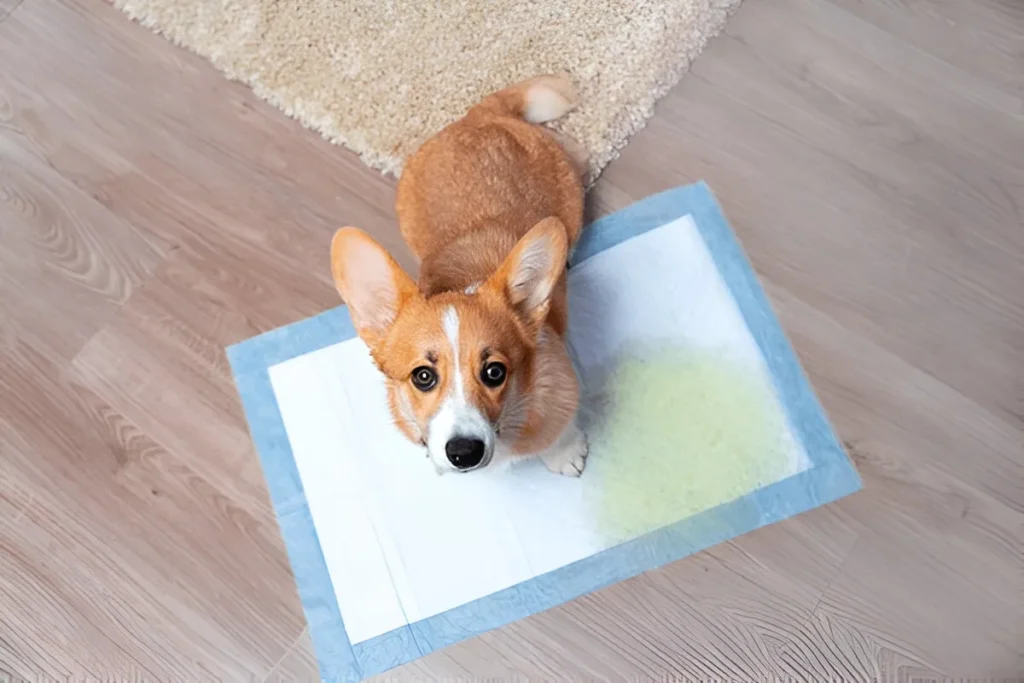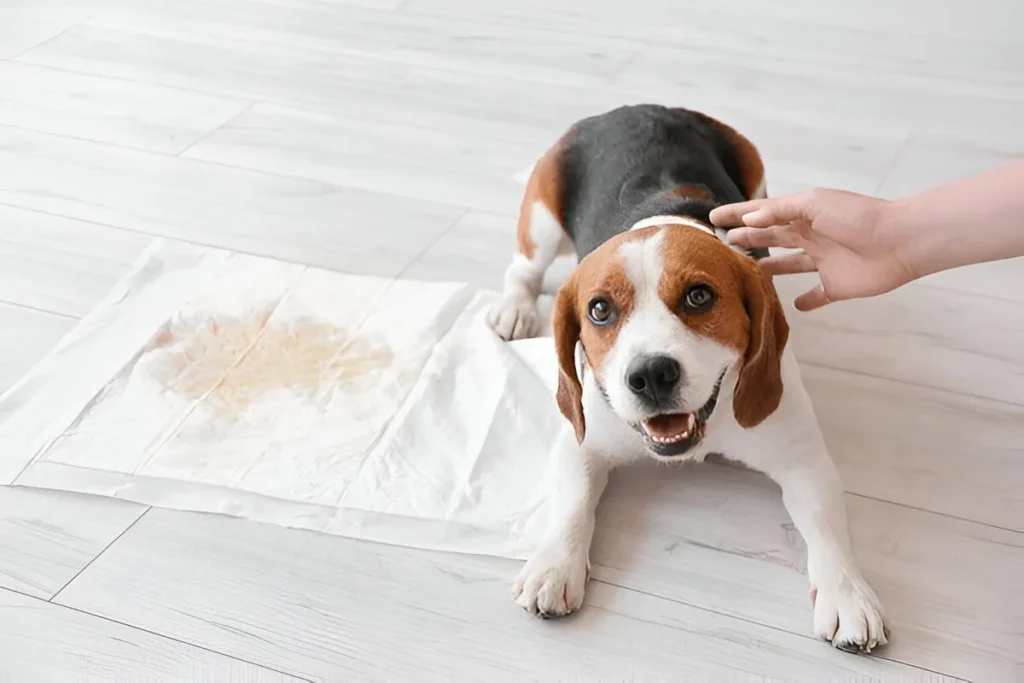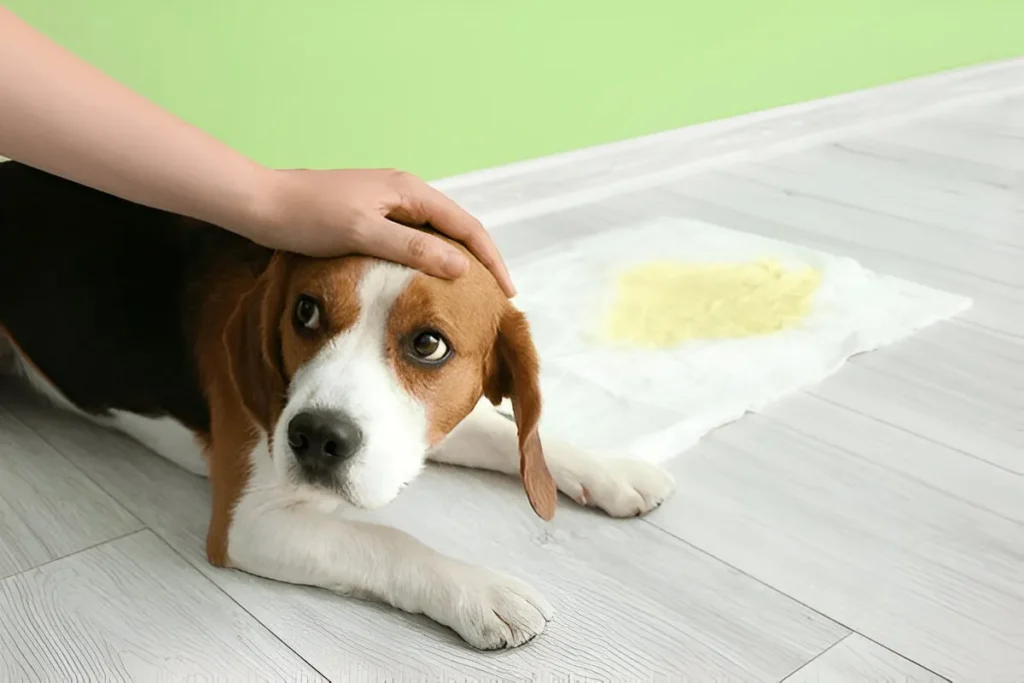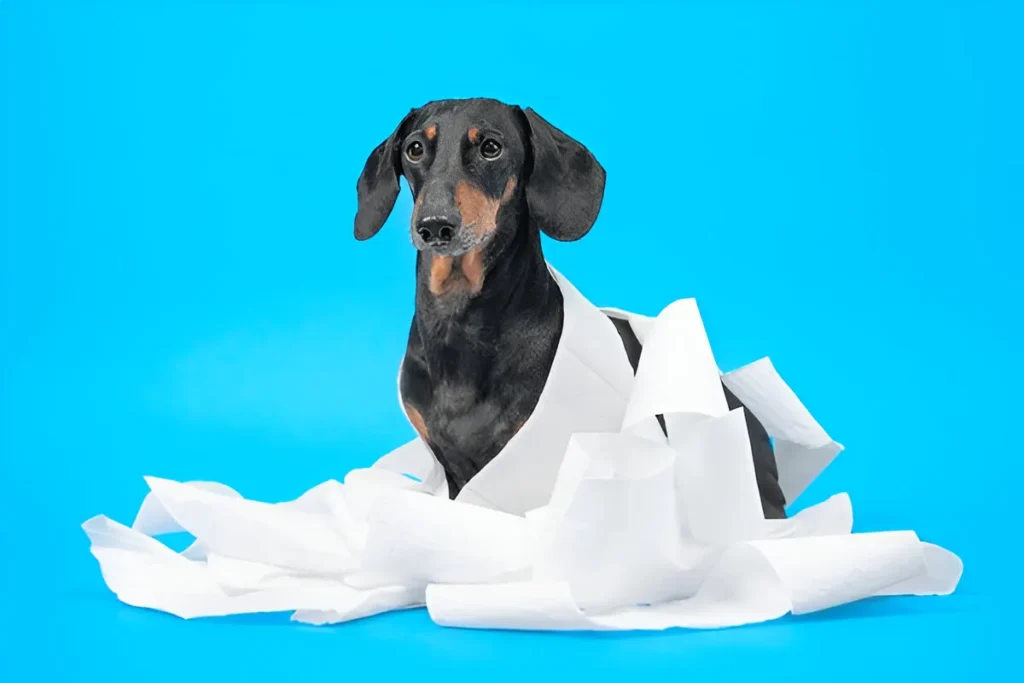
So, you’ve got a puppy. They’re cute, wild, and probably chewing on your shoelaces as you read this. But there’s one big question you’re probably wondering: when should you start potty training?
Some people say, Wait. Others say to start right away. But honestly? People are confused about the ideal potty training age. The right time depends on your puppy’s age because age is the factor that actually determines development, and your readiness to commit to it.
And spoiler alert: the earlier you start, the smoother things go.
When Should You Start Potty Training a Puppy?
The best time to start potty training your puppy is around 8 weeks old, once they’re home and beginning to settle in. At this age, they learn things very fast and are mentally ready for everything.
Now, that doesn’t mean they’ll master it in a week. It may take a long time. But it does mean it’s a good time to begin laying down the foundation.
Why Early Training Makes a Huge Difference

You might be tempted to wait a few weeks until your pup “gets used to things.” Don’t. Starting too late makes the whole process harder than it needs to be.
Early training helps:
- Build predictable routines.
- Prevent bad habits (like peeing under the table).
- Strengthen your bond with your dog.
- Set the tone for future obedience training.
Puppies are little sponges during their first few months. Waiting too long might mean they’ve already decided your bedroom carpet is the bathroom.
What Tells You Your Puppy Can Start Potty Training
Wondering if your pup is ready? Look for these puppy readiness signs:
- They can go about 30–60 minutes without accidents.
- They’re alert, curious, and starting to follow you around.
- They show signs before going (sniffing, circling, whining).
- They’re eating and sleeping on a regular schedule.
Puppies learn things quickly at the age of 7 to 8 weeks old. But you should have an idea that every puppy is different. Small breeds, like Chihuahuas, have small bladders. They need to go to the potty more often. While larger breeds like Labradors grow quicker than other puppies.
Potty Training and Developmental Milestones
The first 3 months are very crucial for a puppy as during this age they go through rapid brain and body development, say veterinarians and pet behaviorists. It’s when they’re learning about their world — and, yes, where to urinate.
Typically, these developmental milestones include:
- At 6–8 weeks: Learning basic cause and effect.
- At 8–12 weeks: Starting to form habits.
- Around 12 weeks: Gaining better bladder control.
By 8 weeks old, your pup’s mind is ready for new habits. You’re getting them before they’ve developed any bad habits, and you’re teaching them structure from the start.
Breed Differences That Affect Potty Training

Yup, breed differences can make a big impact.
Some are simply more independent breeds (read: stubborn) and more difficult to train. Others are just quick learners
Here’s a quick breakdown:
- Labrador Retriever: Friendly, food-motivated, can be easily trained.
- Chihuahua: Tiny bladders, requires lots of supervision.
- Terriers: High-energy and sometimes willful.
- Toy breeds: Small pups need to go out all the time.
- Working breeds: Thrive on structure and pick things up quickly.
In short, your training style can change based on your dog.
How to Start Potty Training (Without Losing Your Mind)
Now you know when to start potty training. But now the question arises of how to start? Right?
Here’s your no-nonsense plan:
- Choose one potty spot (inside or outside—but stick to it).
- Take your puppy out right after they wake up, eat, or nap.
- Use one command (like “Go potty”) every time.
- Praise like crazy when they go in the right place.
- Ignore or gently redirect accidents (don’t punish).
The routine is more important than perfection.
Indoor or Outdoor? Pick What Works for You
When it comes to housebreaking your dog, the choice between indoor vs outdoor potty training depends on your routine and preferences. Some pet owners find pee pads convenient for indoor use, while others stick strictly to outdoor trips. If you’re unsure which method to follow, go with the one that best fits your living situation and daily schedule.
Go indoors if:
- There’s easy outdoor access from your place.
- Your puppy is too young to go outside safely.
- You work from home and need flexibility.
Go outdoors if:
- You can easily take your dog outside.
- You want to avoid pads altogether.
- You’re fine with doing a bit more in the beginning.
Both methods work—just pick one and stay consistent.
What Do Experts Say?
Most dog breeders, veterinarians, and pet behaviorists agree on one thing: don’t wait too long to start.
Even if your puppy isn’t fully house-trained until 4–6 months, starting the process at 8 weeks gives you a head start.
At Prestige Dog Training, we always recommend tailoring the schedule to the dog, not the other way around. Some pups pick it up in two weeks. Others need two months. And that’s normal.
Common Mistakes (and How to Avoid Them)
Even well-meaning owners make a few potty training slip-ups. Here are the big ones:
- Inconsistency: Skipping potty breaks or changing the potty spot.
- Punishing accidents: This just makes dogs anxious and confused.
- Not supervising: If your pup is loose and quiet… bad news is probably brewing.
- Waiting too long: Young puppies can’t hold it for more than an hour or two.
The fix? Stick to a schedule. Be patient. And expect some messes. It’s not forever, promise.
Tools That Help (But Won’t Do It All for You)

Here are a few things that make training smoother:
- Crates (teach bladder control and reduce accidents)
- Enzyme cleaners (remove odor so they don’t go in the same spot again)
- Potty bells (hang on the door—they ring when they want to go out)
- Timer apps (set reminders for potty breaks)
- Puppy pads (for those choosing indoor methods)
Just don’t rely on tools alone. You’re still the key part of the training plan.
Conclusion
If you don’t know when to start potty training, the ideal age is 8 weeks old. It’s the perfect time for puppies to start learning.
Whether you’re going indoors or out, the most important factors are patience and consistency. With the right start, your puppy learns quickly than you might imagine.
And if you need a little backup? Prestige Dog Training is here for it. Our trainers specialize in early puppy education, and we customize the potty plan to your dog’s age, breed, and home life. We make sure training fits your world, so you both win.
Start early. Stick with and celebrate the small wins. And get ready to live life with a well-trained pup.



